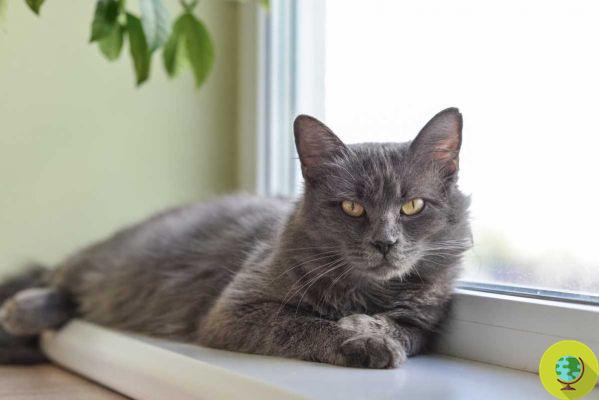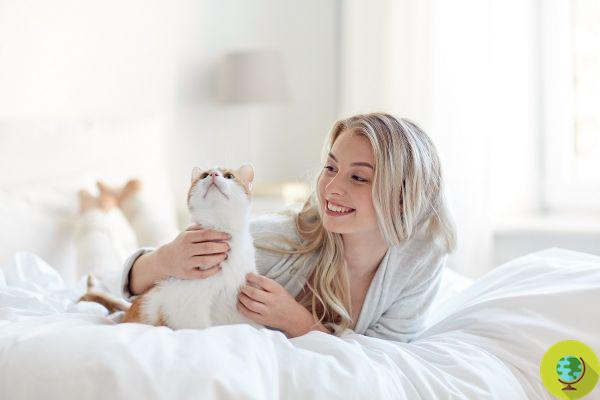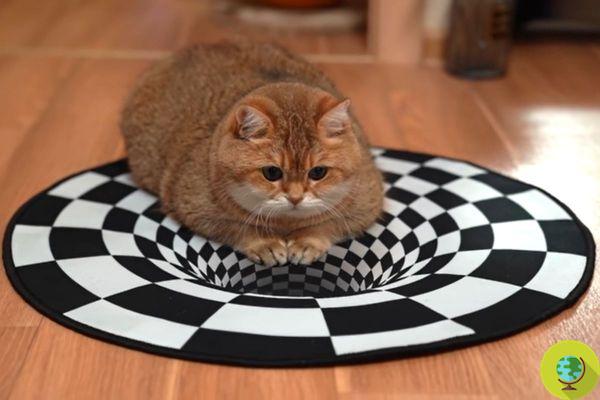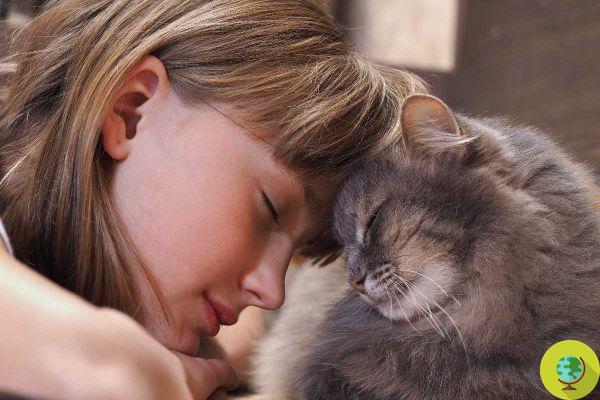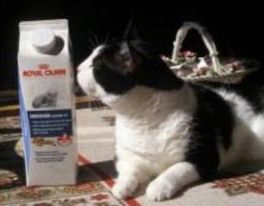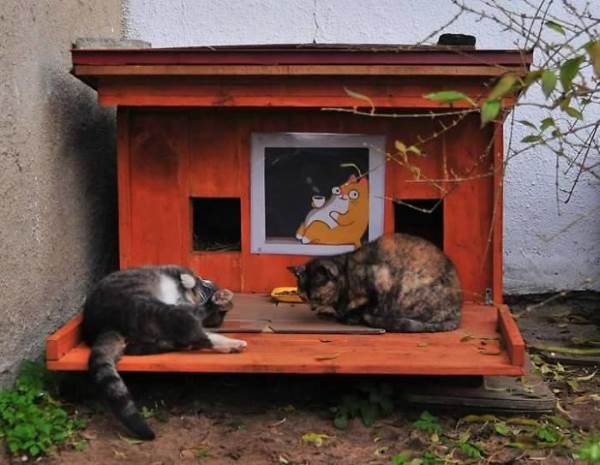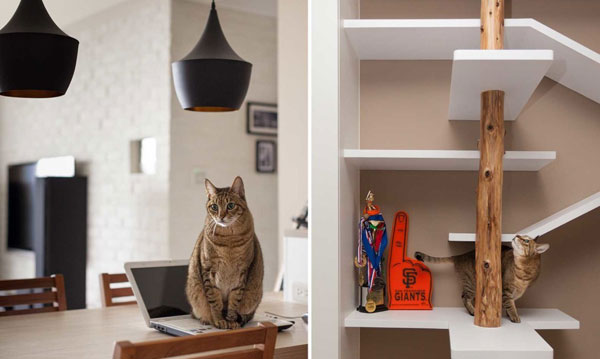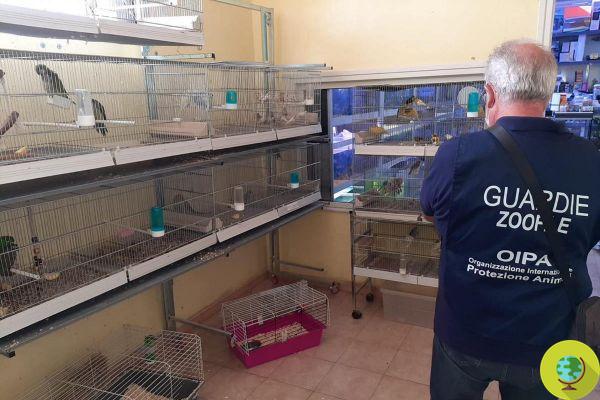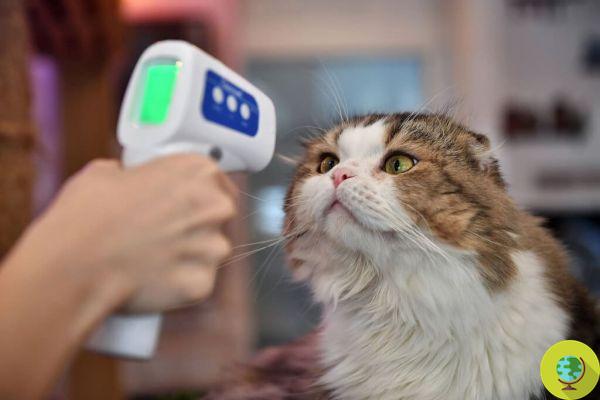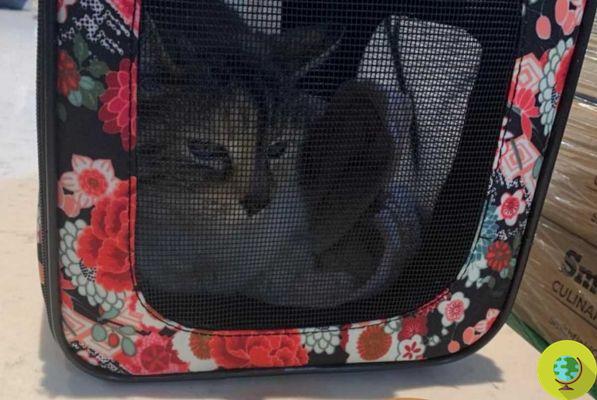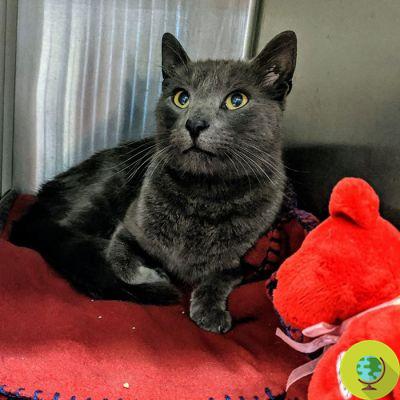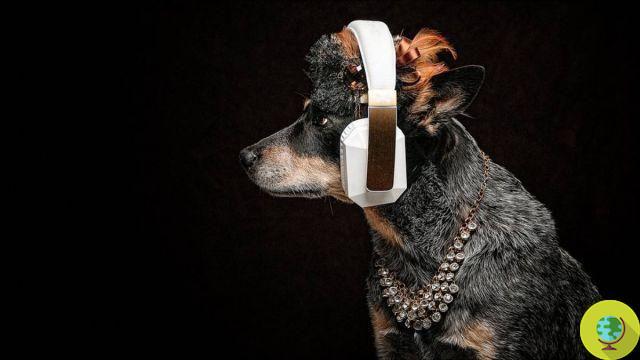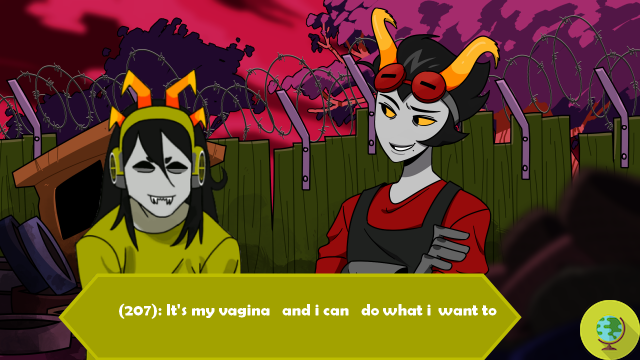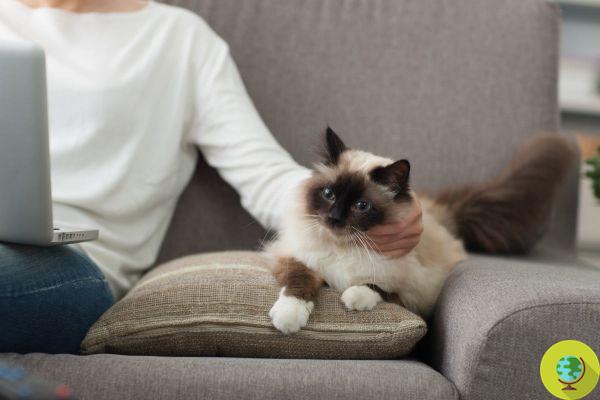
Adopting a cat is good for the heart and mind because these magnificent happy ones have great therapeutic power
Looking at a cat is like looking at the fire, you are always enchanted. Having a cat at home is a real therapy that is good for the mood
Adopting a cat is good for the heart and mind because these magnificent happy ones have great therapeutic power. There cat therapy it is, in fact, therapy based on the relationship that is established between the cat and the human being, aimed at improving our psychophysical balance.
Being mistreated for a long time, actually, i cats they are very affectionate animals, even if they often decide how and when.
As we know, living with a pet brings numerous benefits not only to the mind, but also to the body.
Read also: Too much cuddling stresses cats: 4 tips for happy cats
Index
It removes bad mood and is good for the heart
First of all, in spite of any drug therapy, the presence of Micio can benefit body and mind, keep a bad mood away and be good for the heart. All thanks to the contact with the hair, which produces oxytocin, the hormone of happiness and which gives us serenity. Not only do dogs improve the health of every single member of a family, but felines also have the ability to help us in cases of depression and anxiety.
We could say that cats extend their lives because they are good for heart health, reducing mortality in cardiological patients. All this is said by science that has been using pet therapy for some time also in hospitals.
Extend life and reduce stress
A research in particular, the one published some time ago in the American Journal of Cardiology has just shown that those who own a cat have a higher survival rate than those who do not have a feline.
In addition to the reasons already listed, it is added that the contact with the cat's fur is pleasant and relaxing, it has a positive effect on the heartbeat and heart rate and blood pressure. Same effect for the purr.
But not only that, the cat by nature is more suspicious than the dog, therefore it stimulates greater self-control in the owner.
Decreases the risk of heart attack
Another research shows the benefits of cat therapy and it is that of the University of Minnesota which establishes that the presence of a cat at home decreases the risk of heart attack by 30%.
There are still some benefits in terms of muscle tension, purring has been shown to increase the ability of a tissue to relax, a muscle band to stretch and a wound to heal.
A panacea for the elderly and Alzheimer's patients
Positive effects of the presence of a cat were then found in the elderly alone, in Alzheimer's disease patients, reducing the levels of anxiety generated by the degeneration of the disease, in chronically ill patients, among people with disabilities and among those suffering from insomnia. .
Protects children from asthma
A study by Danish scientists revealed that the presence of cats not only protects children from asthma but could also help them fight obesity and diabetes. The study, conducted by the Copenhagen Studies on Asthma in Childhood Research Center (COPSAC), revealed that cats neutralize the effect of a gene that, when activated, doubles the risk of developing asthma in children.
Consequently, having a cat in the house along with a newborn baby means that the gene is never activated.
In short, the benefits of cat therapy are many, without considering that adopting a stray cat is already extraordinary in itself.
Follow your Telegram | Instagram | Facebook | TikTok | Youtube
On cats, you may also be interested in:
- How much and how do cats sleep?
- Licking, 'kneading', blinking: this is how cats show us their love
- Adopting a cat is good for the heart (and not only). Science says so
- Cats protect babies from asthma







